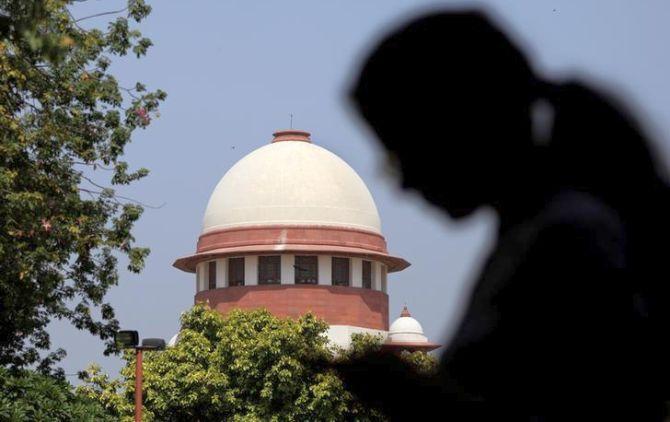A plea has been filed in the Supreme Court seeking investigation under the supervision of a sitting apex court judge against the Adani group of companies in light of the allegations made by the US-based Hindenburg Research.

The plea, filed by Congress leader Jaya Thakur, has also sought a direction for investigating the role of the Life Insurance Corporation of India (LIC) and the State Bank of India (SBI) in investing huge amounts of public money in the follow on public offer of Adani Enterprises, allegedly at a much higher rate than the prevailing share price in the secondary market.
A follow-on public offer is a process by which a company already listed on a stock exchange issues new shares to the investors or shareholders, usually the promoters.
On Monday, the Centre had agreed to the apex court's proposal to set up a panel of experts to look into strengthening the regulatory mechanisms for the stock market following the recent Adani group shares crash triggered by Hindenburg Research's fraud allegations.
The top court is seized of two petitions alleging exploitation of innocent investors and "artificial crashing" of the Adani Group's stock value.
Adani group stocks have taken a beating on the bourses after the Hindenburg Research made a litany of allegations, including those of fraudulent transactions and share price manipulation, against the business conglomerate.
The Adani group has dismissed the charges as lies, saying it complies with all laws and disclosure requirements
In her plea, Thakur has alleged, "The Hindenburg report has raised serious question about act and conduct of respondent no.13 (Adani group of companies) and their associates, by which they have caused huge losses to the various public sectors bank and LIC by inflating the share price of shares of their group of company for obtaining loans and investment from banks and financial institution ibid."
The plea, filed through advocate Varinder Kumar Sharma, claimed in accordance with the disclosure made in the Hindenburg report, the Adani group and their associates have violated various laws, including the Indian Penal Code, the Customs Act, the Securities and Exchange Board of India Act, the Narcotic Drugs and Psychotropic Substances Act and the Prevention of Corruption Act for "illegal and undue benefit" and have caused huge losses to the public sector bank and financial institutions.
"The Adani group, ie, respondent no. 13 is indulge in huge corruption, for gaining illegal and undue benefits, such as loans from various banks upon highly inflated share price of shares of their companies, due to which Rs 82,000 crore of public money is at risk," it claimed.
The plea alleged that after the allegations were made in the Hindenburg report, the FPO of Adani Enterprises was opened in January and the LIC, SBI and several public sector companies invested huge amounts at the rate of Rs 3,200 per share, whereas in the secondary market the share was prevailing at Rs 1,600 to 1,800 per share.
It has urged the apex court to order an investigation against the Adani group and its associates by various investigating agencies including the CBI, the Enforcement Directorate, the Directorate of Revenue Intelligence, the Narcotics Control Bureau, the Securities and Exchange Board of India and the Serious Fraud Investigation Office under the supervision and monitoring of a sitting judge of the top court.
During the hearing of the two pending petitions on Monday, the Centre had stressed that market regulator SEBI and other statutory bodies are "fully equipped", not only regime wise, but otherwise also, to deal with the situation.
The top court had last week said the interests of Indian investors need to be protected against market volatility in the backdrop of the Adani stocks rout and asked the Centre to consider setting up a panel of domain experts headed by a former judge to look at strengthening the regulatory mechanisms.











 © 2025
© 2025